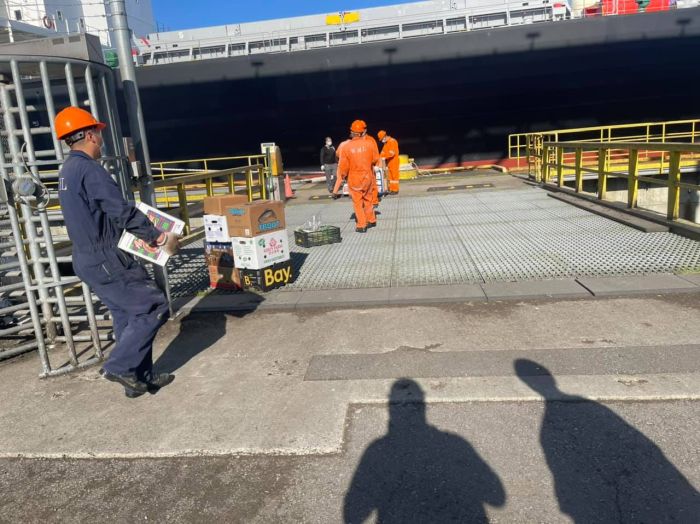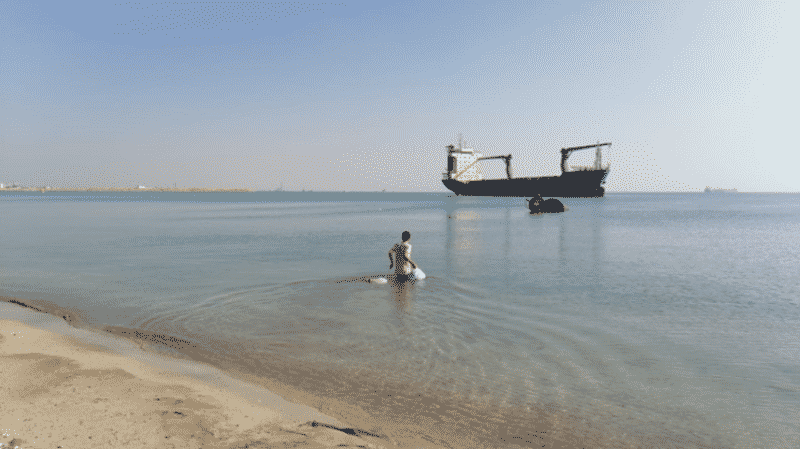
[ad_1]

New figures released by the International Transport Workers’ Federation (ITF) show that $44,613,880 USD of seafarers’ owed wages were recovered by the ITF’s network of inspectors across the world last year. Meanwhile, the number of ship abandonments reported more than doubled from 40 in 2019, to 85 in 2020.

‘Owed wages’ are usually pay, bonuses or entitlements that are unpaid by a shipowner or their agent for the work already done by a seafarer.
ITF Inspectorate Coordinator Steve Trowsdale, who leads the ITF’s 134 coordinators, inspectors and contacts, said the owed wages figure was substantial considering how difficult it has been for inspectors to board ships due to Covid-19 restrictions imposed by governments, health and port authorities. Despite restrictions, inspectors supported seafarers with 7,476 cases in 2020, with more than 6,000 vessels boarded.

ITF Inspectorate Coordinator Steve Trowsdale said abandonments were at all-time high (Credit: ITF)
“Despite there being fewer inspections that we were able to undertake due to Coronavirus social distancing requirements and restrictions, our inspectors actually recovered almost the same amount of owed wages for seafarers as we did last year.”
“The pandemic has proved genuinely difficult for some shipowners who were already running marginally viable operations – some have struggled to pay for more-expensive repatriation flights than what they’re used to get seafarers home, and the new cost of quarantine. But financial challenges faced by companies are no reason to suspend the payment wages or not uphold seafarers’ human rights,” said Trowsdale.
The cost of flights and governments’ travel and transit restrictions introduced to combat the spread of Covid-19 has resulted in a ‘crew change crisis’, which sees seafarers routinely forced to work over-contract on vessels. But the Maritime Labour Convention (2006, as amended) prevents shipowners from making seafarers work beyond 11 months onboard.
ITF inspectors often conduct ‘inspections’ of vessels to ensure the health and safety of the crew, and that seafarers on board are fed, supported and paid in accordance with all relevant contractual and legal entitlements. They help seafarers stand up for their rights to stop working and get home at the end of contracts.
But with the pandemic, in-person inspections have become difficult in some countries.
“Being unable to visit vessels in many places, our inspectors and contacts have had to work remotely and engage more than ever before with seafarers through digital channels like social media. The result has been the ITF holding the line for seafarers and their rights during the pandemic,” said Trowsdale.

In addition to recovering the wages of crew aboard this vessel in May 2021, ITF Inspector Nathan Smith also pushed for the seafarers to receive fresh provisions, as per their entitlements under the Maritime Labour Convention (2006, as amended) (Credit: ITF)
“Every dollar recovered by the ITF and our inspectors is income that seafarers and their families are counting on. This is money they earned, need and deserve. Seafaring can be hard, challenging work that requires much skill – and months away from your loved ones. The ITF family won’t let employers rip seafarers off if we can stop it.”

Inspectorate Example: ITF Inspector based in Canada Nathan Smith (ILWU Canada) helped seafarers recover $95,464.77 in owed wages in May 2021. Photograph of ship management counting the seafarers’ owed wages during Nathan’s inspection of the vessel.
Seafarers left abandoned in record numbers
Trowsdale said that in addition to recovering wages, the ITF had been involved in helping hundreds of seafarers who were abandoned by shipowners, helping seafarers get access to food, water, fuel and flights home.
The number of vessels listed on the international abandonment database rose from 34 in 2018, to 40 in 2019, to a record high of 85 in 2020.

Image Credits: itfseafarers.org
High-profile cases include that of Mohammad Aisha, a Syrian seafarer who was made legal guardian of the Bharani-flagged MV Aman (IMO 9215517). Aisha was forced to live on the abandoned vessel for four years while Egyptian authorities tried to sell the ship to pay the owners’ debts. When the ITF became involved in December, it took just five months to get Aisha home.
In 2020 the ITF submitted a record number of abandonment cases to the International Labour Organization. The ITF lodged 60 of the 85 the cases which appeared in the ILO abandonment database last year, representing hundreds of seafarers who were owed wages, repatriation flights, or both.
But Trowsdale said that the number of cases officially reported and recorded by the IMO “is just the tip of the iceberg” when it comes to instances of abandonment and owed wages.
“Abandonment is on the rise, and sadly a reason for that rise has been flag States not standing up to their responsibilities to seafarers. Flag States are supposed to ensure that ships that fly their flags are paying seafarers on time, repatriating them at the end of contracts, and providing the necessities of life,” said Trowsdale.
The ITF now has inspectors in 122 ports in 58 different countries.
“These figures show that the ITF and the ITF inspectorate are still leading the fight against rogue shipowners who would treat their seafarers like modern-day slaves,” said Trowsdale.
“The ITF continues to deliver for seafarers, even in the most challenging times.”
Reference: itfseafarers.org
[ad_2]
This article has been posted as is from Source